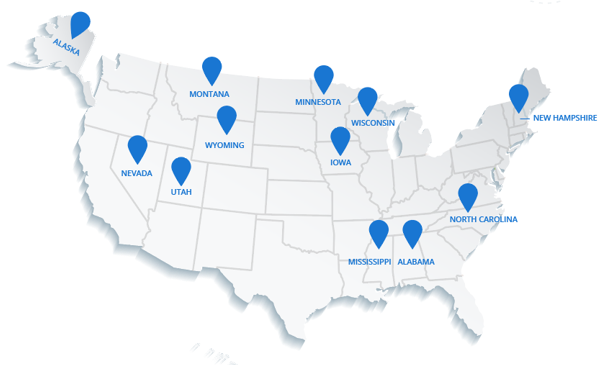Many Registered Nurses (RNs) opt for travel nurse jobs at some point in their career. New graduates particularly join travel nursing jobs for their competitive pay packages, schedule flexibility, and travel opportunities. Travel nursing also serves as the ideal chance to upskill, and gain valuable experience working in varied clinical settings and with diverse patient pools. Regardless of the advantages, it is important for RNs to understand the workings of the profession to make a well-informed decision before committing to becoming a travel nurse. So, how do you get started as a travel nurse?
In this article, we discuss a basic game plan to begin your journey as a Travel RN.
#1 Be Ready With the Necessary Nursing Licenses
To become a travel nurse, you need to have completed any of the following programs:
- A diploma program that qualifies you as a Licensed Practical Nurse (LPN).
- An Associate's degree in nursing.
- A Bachelor's degree in nursing.
Travel nurses are generally RNs, although LPNs can also take up travel nursing based on the location and staffing requirements of the opportunity.
Within the US, your license requirements may vary based on the state where you practice. If you have obtained your nursing license from a Nurse Licensure Compact (NLC) state such as Texas or Florida, your license is a compact license that is valid in all NLC states. You do not need any additional licenses in this case. However, if your license is not from a compact license state or if the state that you working in is not an NLC state, you would need additional licenses based on the regulations of the state. Here, the staffing agency that hires you will need to help you get the necessary license.
#2 Get the Right Credentials
To become a travel nurse, you need to complete certifications, such as Basic Life Support (BLS) and Advanced Cardiac Life Support (ACLS), among others. If you plan on working in cardiac, geriatric, or neonatal specialties, for example, your employer may expect you to be certified in the specialty, in addition to having licenses. Do thorough research well in advance, and keep all your certifications ready, as the responsibility of procuring licenses is on you, and not the staffing agency.
#3 Come Up With a Plan
Given that the journey to travel nursing is a year-long one, it would help to jot down a plan before you get started as a travel nurse. Ask yourself some specific questions such as:
- What specialty would you like to work in?
- What experience and certification does the specialty require?
- Do you have any connections working in the specialty who can shed some light?
- Do you have any opportunities to learn and grow within the specialty in your current hospital?
Make a note of the answers to these questions. If your current hospital can help you gain some experience in your desired specialty, volunteer to take on additional work and adapt to a new shift schedule. This exercise can help you stay in your element when you're finally ready to take locums work.
#4 Pay Attention to Your Taxes
The benefits packaged with a travel nurse contract can be tailored to meet your career ambitions. From sign-on bonuses to travel reimbursement, as a travel nurse, you have an entire suite of resources available to help you decide where, when, and how far across the country you'd like to go. However, it's important to prevent possible tax implications from overwhelming you before you leave home! To become a legitimate travel nurse in the eyes of the IRS, you'll have to do some preparation beforehand. This includes proving that you have a full-time residence in your home state to avoid paying extra taxes for relocation. While you can still work if you do not have a full-time residence, you might have to pay taxes on all of your income, including stipends and reimbursements.
#5 Be Flexible With Your First Travel Nurse Job
Though locum tenens opportunities can open up a whole new world for you to explore, it's important to go easy on your first assignment. Even if the opportunity is based out of an exotic location in Alaska, you might end up feeling home-sick within a few weeks of taking up the assignment. So, ensure that the state where you practice as a travel nurse is close to your support network, while also giving you ample space to travel, learn and grow.
Travel nursing can be a nourishing experience for life. It hones you as a person by exposing you to myriad realities that range from late-night toils to diverse, immersive natural and cultural encounters. By preparing to get started as a travel nurse in advance, you can make the most out of this opportunity and emerge stronger.
At DirectShifts, we partner with registered nurses to help them find their dream jobs. Apply for per diem nurse jobs now and take your career to the next level.
August 12, 2021




Comments